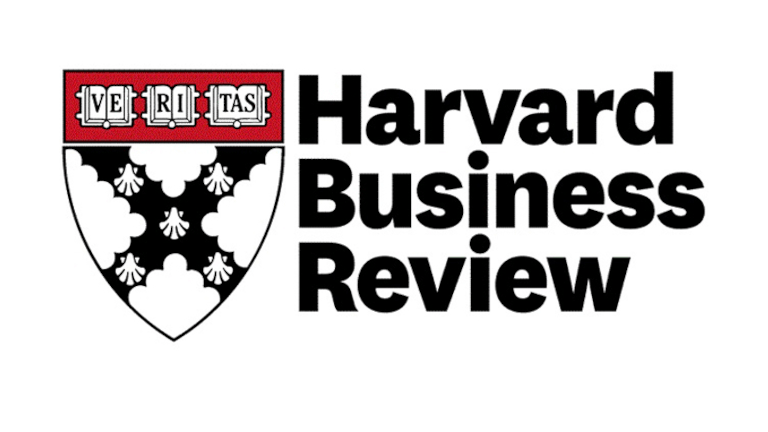Interim Management: It’s Role in Family Business Continuity
You are the principal shareholder of the family business and receive a call on Thursday morning from your chief financial officer. A similar call was made to your banker. There is no cash for tomorrow’s payroll. Even though you have been a long time customer of the bank, it refuses to lend any more money to the company. Are you going to advance the necessary funds? If so, are you going to take other actions to prevent another surprise?
Your neighbor, an owner and senior executive of his family business, falls ill. The prognosis is that he will be unable to return to work for at least 6-9 months. No member of the family is sufficiently experienced or mature enough to succeed the fallen angel even on a temporary basis.
Typically, in the closely held family enterprise, succession is an issue that is often deferred. It is complicated by the fact that there is a talent shortage. The perception is that career paths are limited if not by a dominant chief executive, then by the prospective wall presented by sons or daughters expecting to inherit to the corporate throne. Preparing the next generation to assume such responsibilities is a difficult emotional course filled with barriers between fathers and sons, with sibling conflicts, with inter-marital greed. Interesting, these barriers seem not to exist with female family members. However, in many societies, the thought of a female in the line of corporate succession is unacceptable.
Poor planning is a human characteristic. Effective planning for the continuity of privately-held businesses requires owners to consider many factors each having personal conflicts of some magnitude. For example:
- Should I sell, improving my liquidity?
- Is anyone on the staff or in the family capable of managing the business? (But I don’t have the time to train them; I don’t want to give them that much responsibility now.)
- What can I do if I have already lost confidence in this management team?
Well-managed businesses will prepare for the eventuality of owner incapacity, of management failure, of asset risk through…
- Strong, functioning Board of Directors/Trustees
- Plans for management succession
- Buy-sell agreements with other stockholders
- Other asset disposition instructions
But, even expert preplanning cannot assure the absence of future problems, and cannot protect from the vagaries of business or of human frailty.
Given an unexpected crisis, a control agent is needed. Three alternatives open to the family must be addressed: continuation of the business; sale as a going business before the asset value deteriorates; liquidation of assets to meet obligations of the business and to maximize residual value for the family.
What will be the best course of action? The decision will depend upon many factors some financial, some emotional. Regardless of the decision, all actions require…
- A documented plan
- Identification of a responsible party to implement the plan
- Definition of the role and responsibilities of this party
- Monitoring of progress against the plan
- Updating of the plan and/or recommendations based upon current data.
The obligation of the control agent is to ensure that these elements are performed. The responsibility as control agent is often delegated (on behalf of the family) to an “interim manager.” No undue dissipation of asset values nor are further surprises acceptable during this period of business continuity.
When owner/manager incapacity or loss of internal family management leadership exists, a new executive may face a hostile, emotional environment. Company personnel feel the leadership void immediately. Insecurity mounts.
Without planned, trained successors, premature selection of a long-term manager can raise anxieties rather than lead to calm. Search for outside qualified replacement candidates is a time-consuming process, often not accomplished in less than 90-120 days. Immediate action is required to fill the management void.
One solution for this interim period is to retain a management professional who is equipped to handle the crisis environment. The benefits are many…
- A buffer is provided to serve as advocate for the family
- Skilled, experienced managers ensure operating continuity and leadership inside the company. No question of credential exists internally or with vendors and customers.
- Analyses and decisions concerning the company can be made with less emotion and with less time pressure.
- Third party involvement contributes to the elements of good faith, prudence, and due diligence, and permits the family to audit ongoing activity.
Operating problems with a deteriorating asset base, raise other concerns. Closely held companies often have inadequate financial expertise to provide suitable reports, and if reported, are withheld from key family members. Early signals of serious problems are rarely identified. Before liquidity disappears and the potential for recovery becomes limited, an independent analysis of operations and a plan for corrective action are critical to protecting the value of the operating assets. Typically, such analyses are not performed until the crisis becomes so obvious that asset values are already deteriorating.
A qualified professional is key to a successful experience with the interim management process. To be considered successful, the enterprise must be stable; crisis factors neutralized; credibility with customers, vendors and creditors restored.
How do you select the right professional? Most have the following traits:
- Ability to assimilate and organize large volumes of data and to formulate a feasible plan.
- Interpersonal skills with a distinctive ability to communicate with others.
- Sense of urgency and ability to set appropriate priorities.
- Experience in related situations.
The key to a successful interim engagement is concentrating on a few vital problems while deferring less important issues. But care must be exercised during the diagnostic state to recognize multifaceted aspects of the situation and to avoid narrow mindedness or uni-dimensional analysis. The objective is stable or positive cash flow.
Competent managers of under-performing companies are over extended beyond reasonable spans of control. Tasks and objectives must be carefully redefined and overload avoided. Forcing profit responsibility down to the lowest possible level in the company is conceptually attractive, but it may not be very practical if managers are not prepared for it. Support and training are critical. The crisis team is still best formed with internal staff.
The reward for a interim executive is successful completion of the engagement, where objectives have been met and it is time to move on. Different talents and management skills are required in a stable, growing scenario. Boredom is common once the excitement is over (the same problem reported by the military with a peace-time army).
By Gary Brooks, CMC, CTP; BMD Advisors
 Gary Brooks, CMC, CTP, (www.bmd-advice.com) is well recognized as a family business and crisis intervention consultant based in New York, and a founding member of the Turnaround Management Association. He serves as Principal of BMD Advisors, 2011 to Present, whilst providing a broad spectrum of consulting services to early stage and mid-market companies. With a focus on guiding enterprise management in building a stable, flexible foundation, and achieving and maintaining profitability, he further develops operating and financial strategies on which to base healthy growth. His Skills/Expertise could further be defined as: Operations & administrative management in complex organizations; financial & strategic advisory to commercial & non-profit enterprises; Interim COO to achieve improvements in performance, & Family Business Adviser. Connect with him on LinkedIn.
Gary Brooks, CMC, CTP, (www.bmd-advice.com) is well recognized as a family business and crisis intervention consultant based in New York, and a founding member of the Turnaround Management Association. He serves as Principal of BMD Advisors, 2011 to Present, whilst providing a broad spectrum of consulting services to early stage and mid-market companies. With a focus on guiding enterprise management in building a stable, flexible foundation, and achieving and maintaining profitability, he further develops operating and financial strategies on which to base healthy growth. His Skills/Expertise could further be defined as: Operations & administrative management in complex organizations; financial & strategic advisory to commercial & non-profit enterprises; Interim COO to achieve improvements in performance, & Family Business Adviser. Connect with him on LinkedIn.






